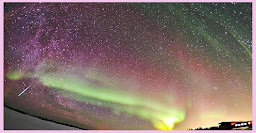Thursday, March 5, 2015
Are We Searching For New Planets
Or Intelligent Life

ONE of the sessions
of the AAAS meeting was dedicated to planets in other solar systems, a field of
enquiry which has blossomed as thousands of them have been detected. Finding
such exoplanets is interesting in its own right, of course. But you do not have
to scratch far beneath the surface to realise that the planets themselves are
not the real motive. William Borucki, an astronomer who pushed for the
construction of Kepler, the orbiting telescope responsible for locating most of
the exoplanets that have so far been found, puts it plainly. He says that the
whole enterprise is about discovering whether human beings are alone in the
universe.
At the same time, just next door to the exoplanet seminar, a less
well-attended session considered the matter from a markedly different
angle—namely whether mankind should be sending signals into space in the hope
that they might be detected by aliens. There has been a hotchpotch of efforts
to do this already, ranging from one in 1974 by Frank Drake, a pioneer of the
search for extraterrestrial intelligence (SETI), to an advertisement for
Doritos, a snack food, that was beamed in the direction of a star in the
constellation of Ursa Major in 2008. What is now being suggested, by Seth
Shostak of the SETI Institute, in California, which leads the search for
aliens, is a more concerted effort. He wants to use the world’s largest
radio-telescope dish, at Arecibo in Puerto Rico, as a transmitter to beam some
kind of radio greeting towards nearby stars.
There is vehement opposition to this plan,
not least because it might pose a danger from the sort
of malevolent aliens often depicted in science-fiction films. This has
preoccupied no less a mind than that of Stephen Hawking, a theoretical
physicist, who warned against the idea of seeking out contact in 2010. He
remarked, by way of historical analogy, that past “first-contact” incidents
between groups of humans, such as European explorers and native Americans, were
not usually noted for their peaceability.
What has changed, as far as Dr Shostak is concerned, is a growing sense
that first contact is inevitable. Humans have been spraying radio waves into
the cosmos for quite a bit longer than anyone on Earth has been listening for
signals coming the other way. The first television advertisements will already
have passed about 200 sun-like stars. Better, he argues, to try to control the
message by speaking deliberately to anyone who is out there than let them to
form their own conclusions from ads for tortilla chips.
David Brin, an astrophysicist and science-fiction author, took to the
stage to posit, ominously, that if aliens really are out there and Earthlings
have not yet heard from them, perhaps those aliens know something that humans
do not. Shortly before the meeting, Dr Brin and 27 others—including Geoff
Marcy, an astronomer at the University of California, Berkeley, who is the
single most prolific discoverer of exoplanets—penned a statement in opposition
to the SETI Institute’s plan. “As a newly emerging technological species,” it
reads, “it is prudent to listen before we shout.”
Both listening and shouting involve, of course, an extraordinary
long-odds bet. All of the radio spectrum and much of the optical one might
carry a message, or be used to broadcast one: the chances of alien
interlocutors being on the right frequencies are low. And there is no guarantee
that Earth’s present technological age of radios and lasers will align with the
methods of a far-flung astronomer.
Should the bet come off, though, much is at stake. Dr Brin and other
dissenters are not against broadcasting altogether, but argue that the decision
of when and what to send ought to be the subject of a grand, global survey.
It might all sound rather esoteric, for it is unlikely an alien
civilisation does exist—at least within the range of any sort of broadcast that
is currently possible. But if someone does take it into his head to send
messages out on the off-chance, then he will, by default, be speaking for the
planet as a whole. And if there is a reply, the planet might just wish it had
paid more attention to the matter.







No comments:
Post a Comment